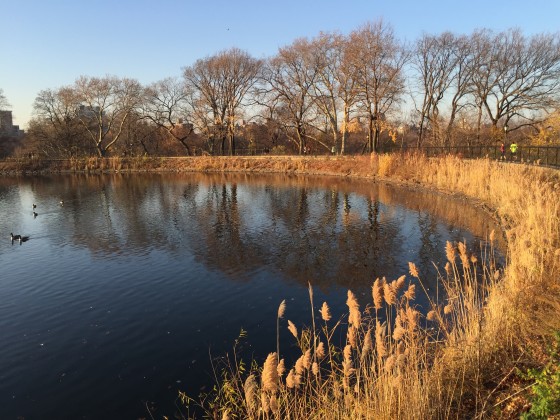
Last week, I wrote about a powerful empathy exercise. This week, I want to write more about some additional powerful things I’ve learned recently about empathy.
I like to watch parts of The Late Show with Stephen Colbert. It’s on too late for me, so I watch it on DVR while I’m exercising in the morning. I tend to watch his opening monologue and the segments when he is sitting at his desk making fun of current events. I only watch the interviews occasionally.
I’m happy I chose to watch an interview with Michael Render, better known as Killer Mike, of the music group, Run the Jewels.
The interview focused on how Mike is working to make the world a better place. He encouraged Late Show viewers to mentor kids; to teach them “the path you were taught.”
I had the good fortune of winning the lottery of birth—of having many advantages just because I was born in a particular family with very supportive parents. Killer Mike’s point about mentors got me thinking how fortunate I also was to have mentors.
The help I’ve gotten from mentors is something I wrote about in Six Simple Rules for a Better Life. In addition to my dad, who taught me about doing what you love, and my mom, who taught me about healthy eating: Alan Mathog, who ran the first office I worked at when I changed careers in the 1980s, taught me about the importance of regular exercise; and I built on the gifts I was given when I became a voracious reader and learner, and when I participated in a personal development program with the visionary founder of the Strategic Coach, Dan Sullivan.
Killer Mike explained mentoring helps not only the kids you mentor, but it also helps you by teaching you to have empathy for someone who doesn’t look like you.
I’ve had the pleasure of participating as a guest speaker for a couple of mentoring programs. For a bunch of years, until its dissolution due to a lack of funding, I was involved with Directions for Our Youth, a program for inner city ninth- and tenth-graders.
For the last few years, I’ve been a guest speaker for Year Up, an awesome program helping to bridge what founder Gerald Chertavian calls “the Opportunity Divide”: Millions of young adults in the US have talent and motivation, but lack opportunity. At the same time, companies have opportunities available, but lack the talent they need to succeed. Year Up connects young adults who need opportunity with companies who need their talent.
What I didn’t know until I wrote this post, was how Year Up came to be—how its roots lie with empathy from the mentoring Chertavian did as a recent college graduate, acting as a “Big Brother” in the Big Brothers Big Sisters program. It was through that experience Chertavian learned “the incredible value of a caring, consistent adult in the life of a young person.”
This is what Year Up does (from their Web site)…
We identify urban young adults who are highly motivated but lack opportunities to enter the mainstream economy. We talk with companies to understand the skills they need but struggle to find in new hires. Young adults spend six months in the classroom learning the skills employers are looking for, including soft skills. Young adults intern for six months with one of our partner companies, applying their skills and gaining critical work experience. Young adults graduate ready to launch a meaningful career and contribute to our economy and community.
I love all of my speaking engagements—it’s a “light” version of mentoring people to be happier, healthier, and more. It’s particularly gratifying to help mentor the young adults at Year Up, contributing a bit to the soft skills part of their Year Up education.
As I say, this is a light version of mentoring: it’s not the long-term, one-on-one mentoring my niece’s husband does as a “Big Brother” in the Denver area, or my colleague Newell does as a Year Up mentor, or a close friend of mine does as part the Mentoring Moms program; and it’s not the mentoring I was so lucky to have been born into. But it’s something I’m good at; it’s something I love to do—and I’m glad to be able to help in my own small way.
Have you been a “big brother” or done mentoring of some other sort? What has your experience been like? Please join the conversation with your comments…
Best regards,
David
p.s. Year Up has many locations throughout the U.S. Click here to learn more about becoming a Year Up mentor, donor, or guest speaker.
